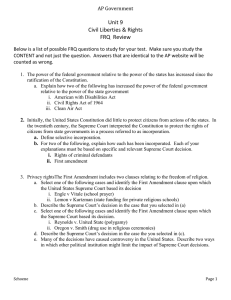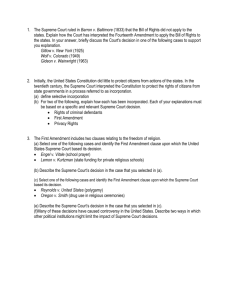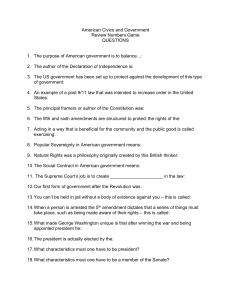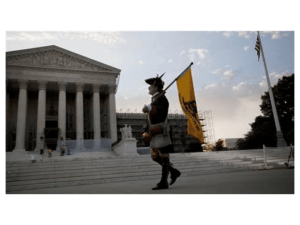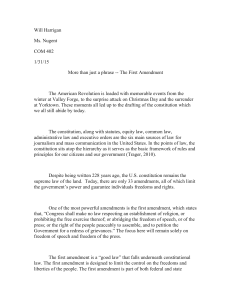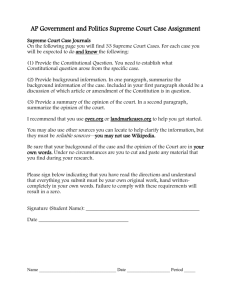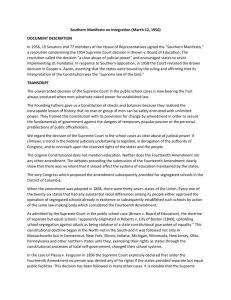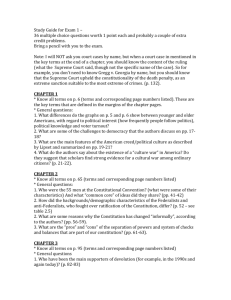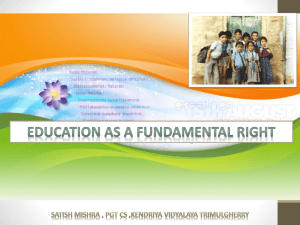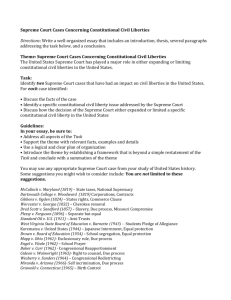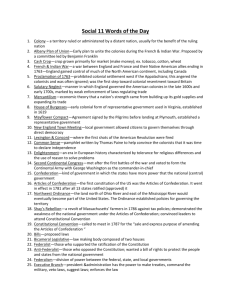Chapter 4 The Supreme Court and the Constitution
advertisement
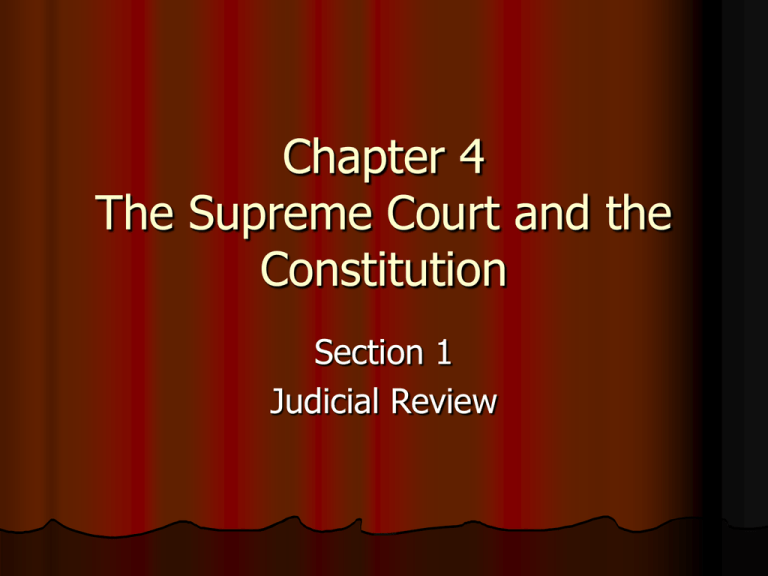
Chapter 4 The Supreme Court and the Constitution Section 1 Judicial Review Constitutional Terms landmark - event that marks a turning point commission - authorization to perform certain duties writ of mandamus - document that requires a public official to perform certain duties Ex Parte - “on behalf of” Constitutional Terms Cont. precedent - legal decision that influences the rulings of later cases writ of habeas corpus - court order requiring the government to release a prisoner unless good cause can be shown jurisdiction - area of authority Main Ideas What does the Constitution say about the Supreme Court’s power of judicial review? -The Constitution does not specify the powers of the Supreme Court Main Ideas What arguments did John Marshall use to support his opinion in the case of Marbury v. Madison? - Marshall ruled that the Supreme Court’s power to issue a writ of mandamus was unconstitutional because only the Constitution (not Congress) should be able to give the Court this power. The Constitution said nothing about this. Main Ideas How did the 14th Amendment increase the power of the Supreme Court? - increased it’s jurisdiction – they were allowed to declare state laws unconstitutional as well as federal laws Chapter 4 The Supreme Court and the Constitution Section 2 First Amendment Freedoms Constitutional Terms establishment clause - a part of the 1st Amendment prohibiting the government from setting up a national religion free exercise clause - part of the 1st Amendment prohibiting government from interfering with people’s religious beliefs libel - publication of statements that wrongfully damage an individual’s reputation Supreme Court Cases Wisconsin v. Yoder - religion Schenck v. United States - speech New York Times v. Sullivan - press Gitlow v. New York - speech Engel v. Vitale - religion Main Ideas In what two ways does the 1st Amendment protect freedom of religion? - NO national religion - free exercise of religion Main Ideas What kinds of speech has the Court refused to protect under the 1st Amendment? - speech that threatens others or social order Main Ideas How did the Supreme Court decision in New York Times Co. v. Sullivan affect freedom of the press? - it set constitutional limits on libel law - expanded the protections of the press to allow criticism of public officials Engel v. Vitale Government should not be writing prayers and religious exercises should not be conducted in public schools
